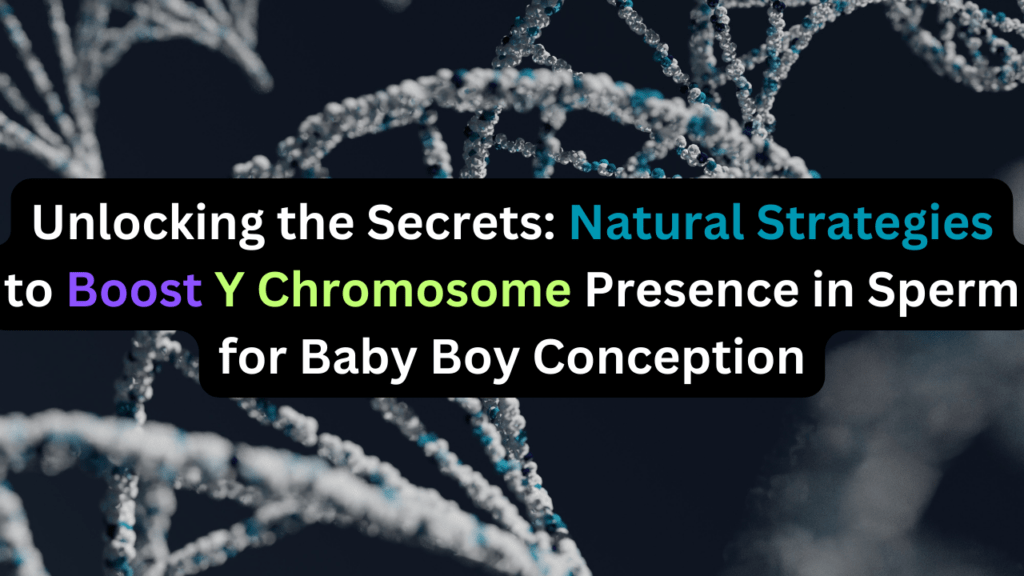It’s important to note that the sex of a baby is determined by the chromosomes in the father’s sperm. The sex chromosome carried by sperm is either an X or a Y chromosome.

- Timing of Intercourse: Some theories suggest that the timing of intercourse during the woman’s ovulation cycle may influence the sex of the baby.
- The idea is that Y chromosome-carrying sperm (male-producing) may swim faster but have a shorter lifespan than X chromosome-carrying sperm (female-producing). Therefore, having intercourse closer to the ovulation date might increase the chances of conceiving a male.
- Diet and Nutrients: Some studies propose that the intake of certain nutrients might affect sperm production and sex determination. For example:
- High Potassium and Sodium Diet: A diet rich in potassium and sodium may increase the chances of having a male baby.
- Meat and Dairy Consumption: Some theories propose that a diet high in red meat and dairy products may favor the conception of male offspring.
- Alkaline Diet: The theory behind an alkaline diet is that it may create a more favorable environment for Y chromosome-carrying sperm. Foods like fruits, vegetables, and certain nuts are considered to have an alkalizing effect on the body.
- Caffeine and Tobacco: Some studies have suggested that high caffeine intake and smoking may be associated with a higher proportion of Y chromosome-carrying sperm. However, both smoking and excessive caffeine consumption have known health risks.
- Position During Intercourse: There’s a theory that certain sexual positions may influence the sex of the baby. Some suggest that deeper penetration during intercourse may deposit sperm closer to the cervix, increasing the chances of Y chromosome-carrying sperm reaching the egg first.
NOTE: There is no guaranteed natural method to influence the ratio of X to Y chromosomes in sperm, some theories suggest lifestyle and dietary changes that might increase the chances of conceiving a male.